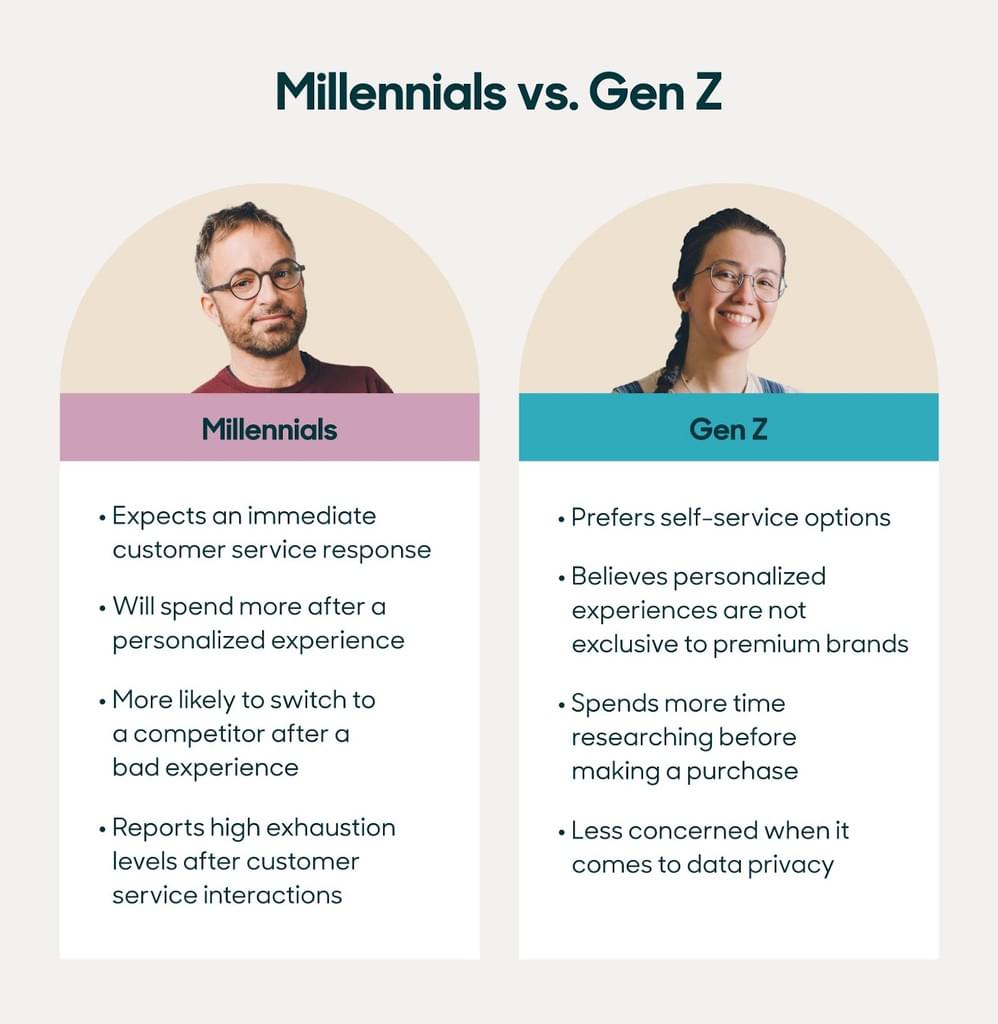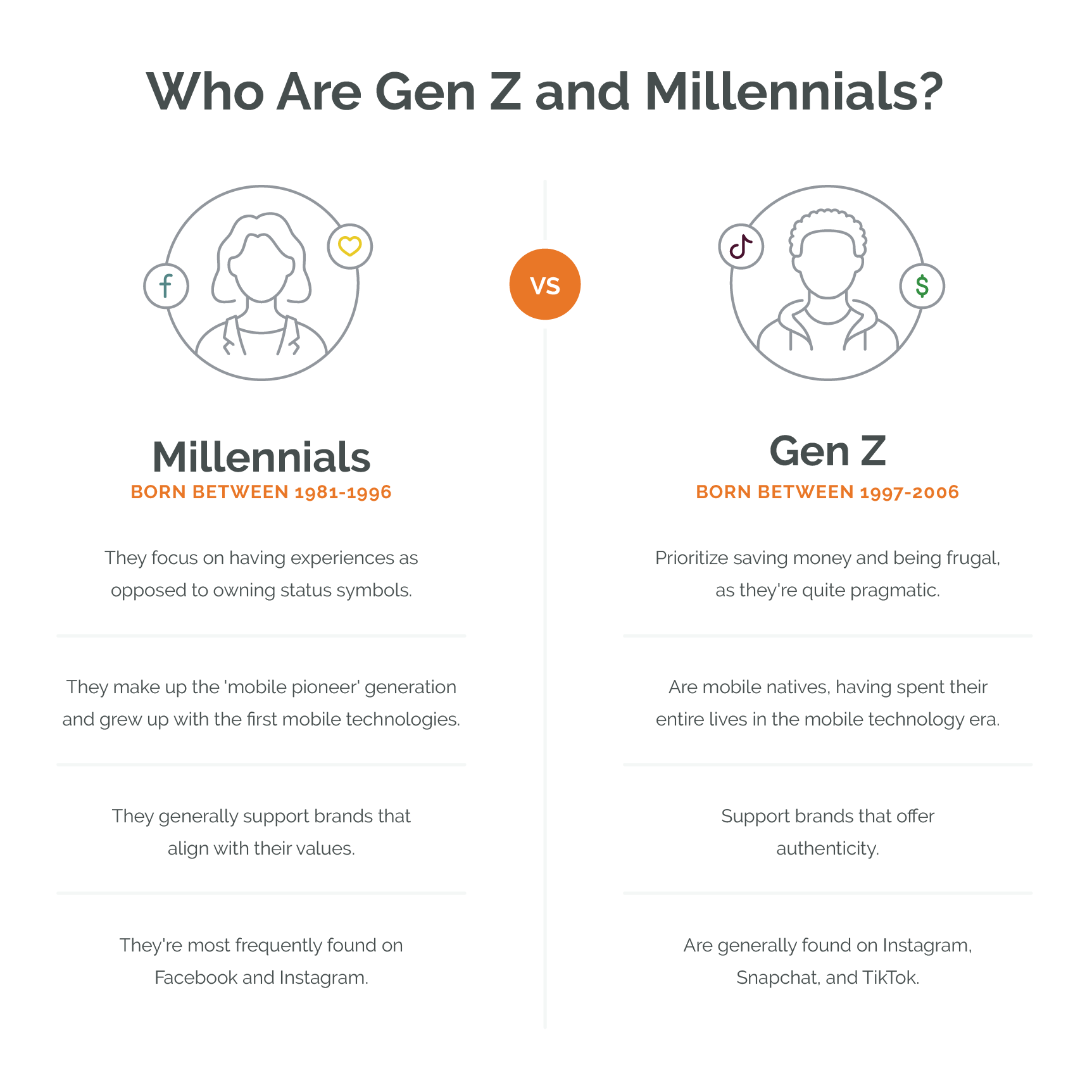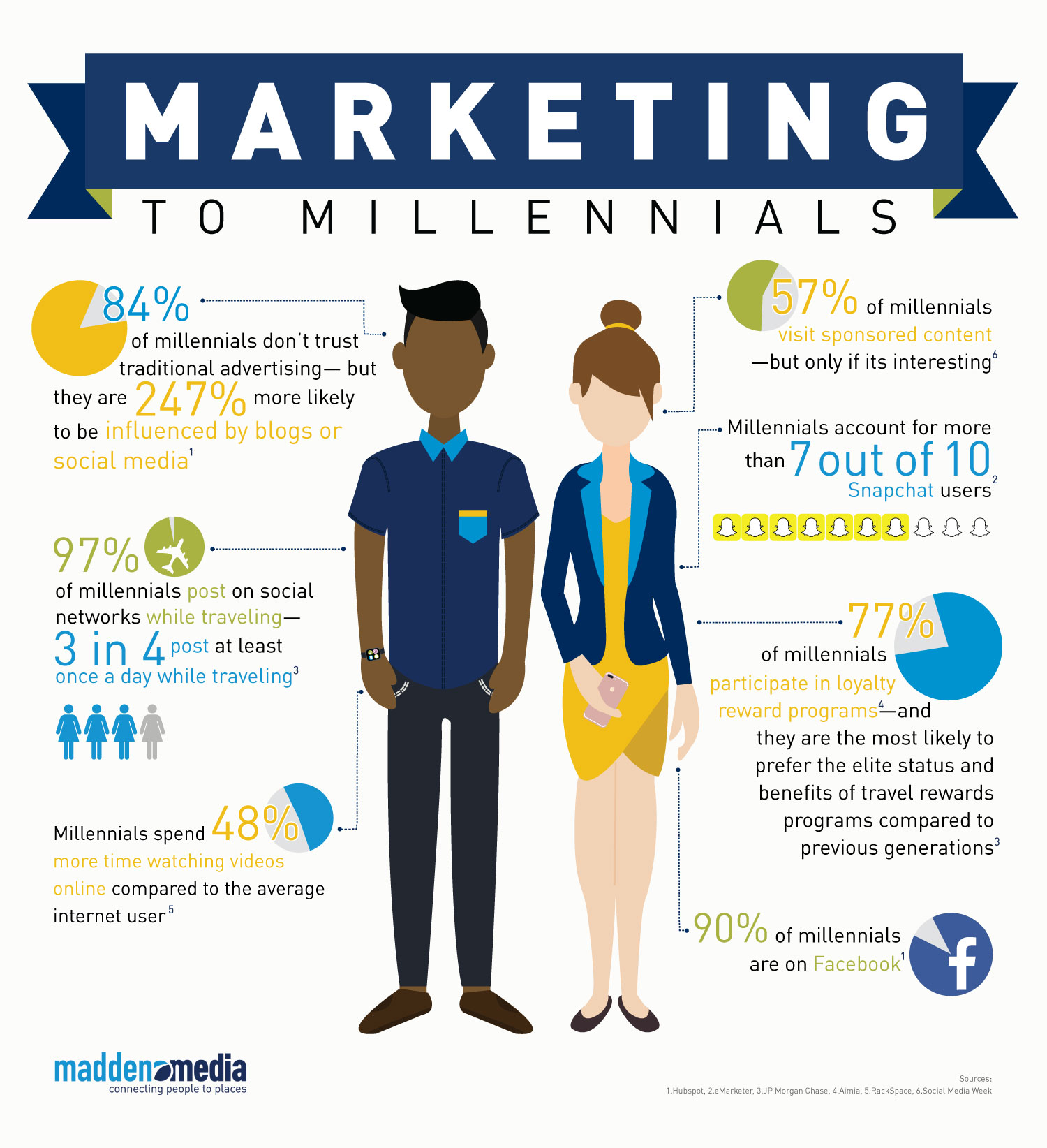Millennials is a term that refers to the generation that came of age or entered the workforce in the early 2000s.
Therefore, it refers to people born between the 1980s and the late 1990s.
In both Japan and the United States, more than 20% of the total population is Millennials.
“What does it mean to be a Millennial?”
“Are there any characteristics regarding the way you consume?”
“What are the key points in marketing to millennial purchasing managers?”
Many people may think so.
Millennials have been exposed to digital technologies such as PCs, the Internet, SNS, and smartphones since they can remember, so they are characterized by a high affinity for digital technologies.
In recent years, many corporate purchasing managers have become millennials, making it essential to target marketing strategies to millennials.
In this article, we will thoroughly explain the characteristics of the Millennial generation and key points for marketing to them.
Who are Millennials?
Millennials
are characterized by being digital natives.
Digital native means that digital technologies such as PCs, the Internet, SNS, and smartphones have been widespread since the time they can remember.
Additionally, as Millennials grow up, they experience harsh social conditions such as the financial crisis, widening inequality, and climate change.
As a result, it is significantly different from previous generations.
- High level of literacy in digital technology
- Work from anywhere using mobile devices
- Also interested in social issues
- Focus not only on work but also on personal life

It is said to have the following characteristics.
As the Millennial generation becomes the core of society, it is said that their unique values will have a major impact on the world.
In recent years, many corporate purchasing managers have become millennials.
It has become essential to take into account the characteristics of the Millennial generation when conducting BtoB marketing.

Characteristics of lifestyle and consumption behavior of Millennials
Let’s take a closer look at the lifestyle and consumer behavior characteristics of the Millennial generation.

1. High affinity for digital technology
The first characteristic of the Millennial generation is their high level of literacy in digital technology.
Since I have been using PCs, the Internet, SNS, and smartphones since I can remember, I have a wealth of knowledge about digital devices and a high level of information literacy.
For example, when faced with something they don’t understand, it was common for previous generations to “ask someone,” but for millennials, it is common for them to “search the Internet.”
Searching the Internet is also commonly referred to as “Google.”
However, it is said that millennials place more importance on searching social media sites such as Twitter and Instagram to obtain actual word-of-mouth information than search engines such as Google.
Millennials are said to have a tendency to place a high value on word of mouth, which is why they generally don’t trust advertisements very much.
On the contrary, many millennials seem to be using ad blockers to prevent advertisements from being displayed when they use the Internet.
On the other hand, millennials are said to listen to what “influencers” say.
An influencer is a person who spreads reviews about products or services they have purchased on social media.
Influencers are becoming more influential in the consumer behavior of Millennials.

2. Don’t get hung up on owning things, value connections with friends
It is said that a characteristic of the Millennial generation is that they are not obsessed with owning “things.”
In previous generations, many people were obsessed with owning things like home appliances, cars, houses, clothes, and accessories.
“Purchasing a home” has been a life goal for many people.
However, many millennials use “sharing services.”
There is little hesitation in using flea markets, car sharing, room sharing, etc.
This is likely due to lower incomes compared to previous generations.
What is said to be important to the Millennial generation is “connections with peers.”
Many Millennials share information on SNS themselves.
On SNS, people who sympathize with the information being sent form loose connections.
Millennials value such connections with their “friends.”
Millennials are also said to be less obsessed with money because they value communication as described above.
What I value more than money is the reputation of my friends on SNS.
As the term “Instagrammable” has become popular, many millennials are willing to put in the effort to take photos and create posts that will get rave reviews.

3. Strong interest in social issues
The Millennial generation is said to be characterized by many people having a high level of interest in social issues.
When the Millennial generation grew up, they were exposed to major incidents such as the Aum Shinrikyo subway sarin attack and the September 11 terrorist attacks in the United States, major disasters such as the Great Hanshin-Awaji Earthquake and the Great East Japan Earthquake, economic hardships stemming from the Lehman Shock, and sexual harassment. Numerous incidents and social issues have occurred, including labor issues such as power harassment.
For this reason, the Millennial generation is said to be highly sensitive to social situations, and many are said to actively participate in social movements such as volunteering.
As millennials have become more involved in social movements, public opinion is increasingly being formed on social networking sites such as Twitter.

4. High sense of independence and emphasis on work-life balance
Millennials are characterized by a high sense of independence and an emphasis on work balance.
As a result of the collapse of the seniority system and lifetime employment that existed in the past, it is said that Millennials no longer strongly seek advancement within companies.
Rather than rising through the ranks within the company,
- Create multiple sources of income with side jobs
- change jobs
- become independent as a freelancer
More and more people are aspiring to such things.

However, this is not the same as “having a weak desire to improve.”
Fewer people work as they once did, pledging their loyalty to the company.
However, an increasing number of people are actively working to improve their skills and acquire qualifications with an eye toward changing jobs or becoming independent.
Additionally, Millennials are said to place a high value on their privacy. The generation that grew up during the period of high economic growth and the bubble period was characterized by placing more emphasis on work than on their private lives.
It was common for employees to work late and then go out for drinks with their boss.
However, because millennials also value their private lives, many people are negative about things like working overtime.
More and more people are thinking that even if they don’t get paid overtime, it would be better to have more private time.
For this reason, when looking for a job or changing jobs, an increasing number of people are focusing on benefits and work-life balance rather than pay and other benefits.

Key points for BtoB marketing that takes millennials into consideration
Let’s take a look at the key points of BtoB marketing that takes millennials into consideration.
In recent years, many corporate purchasing managers have become millennials. Without marketing that takes into account the characteristics of the Millennial generation, it is becoming difficult to conduct sales activities smoothly in BtoB.

Emphasis on gathering information online
The most important characteristic of Millennials is that they are digital natives.
In the past, BtoB sales activities centered on sales representatives visiting companies and speaking with purchasing managers.
Through conversations with purchasing personnel, sales personnel were able to grasp the issues and needs faced by the company.
However, in recent years, as many of the purchasing managers are millennials, such push-type sales methods are becoming less effective.
This is because purchasing staff are increasingly gathering information online rather than communicating with sales staff.
According to a survey, 70% of purchasing managers say they would like to collect information online rather than through sales staff.
In fact, there are a large number of purchasing staff who complete evaluation criteria for products and lists of suppliers based solely on information from the Internet.
Therefore, it is essential for BtoB companies to focus on disseminating information online.

A major point is support for gathering information online.
So how should companies disseminate information online?
The key point here is how we can support purchasing staff in gathering information online.
First of all, it is important to note that the purchasing behavior of purchasing managers often begins with an “online search.”
Therefore, it is important to create content that solves the issues and needs of purchasing managers.
BtoB purchasing activities are complex and diverse, including identifying issues, finding solutions, establishing specifications, and selecting suppliers.
Therefore, content that helps purchasers resolve their issues and needs in the purchasing process is particularly important.
Additionally, a major characteristic of the Millennial generation is that they place emphasis on “empathy.”
Therefore, when creating content, it is necessary to include branding that will resonate with purchasing managers about the company, products, and services.

summary
◆ Millennials are the generation that came of age or entered the workforce in the early 2000s.
◆ Characteristics include high literacy in digital technology, valuing communication with peers, high sensitivity to social issues, and placing importance on personal life.
◆ Marketing that focuses on supporting online information gathering is important for millennial purchasing managers who place importance on gathering information online.

